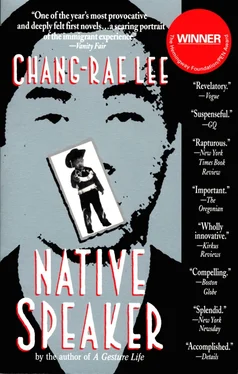“You look very chipper, Parky. What, have you eaten already?”
“With Lelia,” I answer. “You look like shit.”
“I feel like shit. Why not? This is a good time for it. I hate this transitional weather. Is that what Dennis calls it?”
“You’re delirious. Go home.”
“No,” he says, holding a glass of ice water to his head. “I am here already. I am hungry, finally. You will not eat with me? I am buying the food tonight.”
“No.”
“Ah, the chipper young man says no. You are looking very chipper,” he says, now drinking the whole glass in one pull. He calls the waiter in Greek and his glass is refilled. He drinks it all and calls the waiter again, who grumbles something to Jack and just leaves the pitcher.
“What did he say?” I ask.
“That he was not my whore tonight. He also suggested I was a faggot. Also likely a cheapskate.”
“He hardly said three syllables.”
“Greek is a very special language,” Jack answers. “You understand these are rough translations.”
The waiter comes around with our coffee and tea. He acts as if nothing has happened and goes away.
“I love the service in this city,” Jack says, his forehead sweating now. He wipes his face with a napkin. “Very special all around. I must tell you, my friend, that you are being appreciated again. The talk is good.”
“This must mean Dennis.”
“Yes,” he says, smelling his coffee. “I love seeing you, Parky, but in truth you are right. I should be at home, in bed. But Dennis, he is so urgent with things. He is like a human bladder. One can always go if one wants, yes? The question is timing, appropriateness, convenience…”
“Jack, go home.”
“Dennis would have my head,” he says, coughing a little. “I promised I would meet with you. It is fine. I knew that when I refused any more of his fieldwork, this would be my job until retirement.”
“Tailing unreliables.”
“Parky. Listen to me. Everything is fine. Dennis is satisfied again with the registers,” he says, his voice hoarse. “I read your stuff myself. Professional material. Very excellent. I made Dennis admit it. And your analysis of the bombing, at least, was inventive. You understand he cannot use it in his final reports. He says it is not written after our style. Nothing like our style. But he is not angry about it.”
I tell Jack that finesse is not a concept that agrees with him. He nods in admission. In that day’s register, I’d written that in the absence of actual events, it was likely that Glimmer & Company itself was involved in the manufacturing of happenings, creating intrigue and complication for the sake of extending funded research. Certainly, I knew that Hoagland would strike out that part of the day’s entry, but it didn’t matter because I had meant it only for him; it was true insofar as it was possible, which is enough for anyone in our line. More than anything, I was sending a personal note to Dennis, to say that whatever I was giving him should be considered, for his purposes, to be suspect, mistold prose. Perhaps you can’t trust Henry Park, I wanted him to think, you can’t abide anymore what he now sees and says.
Jack tells me, “There could be more material in Dennis’ view, but I am telling him you are doing your best.”
“He’ll get two more weeks,” I say. “That’s the schedule. Then it’s over.”
“Dennis thinks you will come back.”
“Dennis is wrong.”
“This is the hope, of course,” Jack answers. “But then I have never known him to be. He is mad, Parky, a brilliant liar and a cheat and a fool, but he has also never been wrong. I have known him for many years. He always wins the game, if only because he knows how large and wide it truly is. People like us can see just a small part of things. This is inescapable. We are just good immigrant boys, so maybe we don’t care. What you and I want is a little bit of the good life. If we work hard, and do not question the rules too much, we can get a piece of what they have.”
“What is that, Jack?”
“Are you kidding?” he cries. “Just look at yourself. Look at your beautiful American wife. Look at the many things you have, how you can go anyplace you want and speak your mind.”
“But I don’t,” I say. “I’ve forgotten how, if I ever knew. Then, when someone like Kwang attempts anything larger, there’s instant suspicion. Someone must step up and pay to send in us hyenas. We’ll sniff him out. We eat our own, you know.”
Jack shakes his head. “You are difficult, boy. Okay. So listen to me anyway. Listen to me on the matter of these two weeks, Parky. There is still some concern.”
“It doesn’t matter to me anymore. Listen, Jack. This is my mind finally speaking.”
“Come on,” he says. He clears his throat. “The question is, what is Parky going to do now. You are a grown man. You must want control back, yes? This began as your task and it should be yours to the end.”
I don’t answer.
“You can have the knowledge of ending cleanly,” he says. He coughs, hacking away from the table. “I had the chance once. Now I will retire with too many memories.”
I am not certain of the virtue of what he says, but I don’t disagree. For some time now I have been operating under the thesis that Jack is under extreme pressures of his own — whether because of me or not doesn’t seem to matter — and that he is working without regard to my best interests. No illusions for us. I don’t blame him, for I would do the same. I am fond of Jack, and to the end I will strictly believe that he has much feeling for me. It does not matter what he does to me, or I to him, for what other friends can we hope to have? With strange souls like us, who must have opposite hearts from you, treachery is more sweetly served by our dearest than by arch-strangers we never see.
His dinner comes. He folds the shaved meat and peppers into the pita and takes huge bites of the roll. He slurps at his coffee.
“Dennis requests one thing,” he says, still chewing his food. “Hear me out before you say anything. I will do my job tonight for Dennis if it kills me. He wants the remaining registers, of course. Do this please. But this thing that you are working on. This money club. This is important.”
“I’ve made my report on it. He already knows what it is and what it isn’t.” I had written that Kwang took no profits and made no interest, that he just redistributed funds at the end of every week, like any ggeh .
“Yes, I know, Parky. Now Dennis would like an additional item. You have offered some useful facts and analysis but he requires material. You say you regularly make printouts of the list of club members for Kwang. Good. Now make one for us. You will do this?”
I think of the list of Kwang’s people. His best and most loving. In some way I see it as the expression of the past seven years of his life, who he has been at the camp meetings and rallies, at the picnics and races and high school wrestling matches. I almost hear their voices as I open the envelopes, the stiff new bills that rush in to us in even greater tides now that he is publicly troubled, sounding out in marginal English their love for him, their devotion.
“Why does he want it?” I ask Jack.
“I do not ask such things,” he answers, already nearly finished with his meal. “I am happier with limited knowledge.”
“Propose something,” I ask, to push him into saying anything, which can always reveal. “For your friend.”
Jack wipes his mouth and sighs. “Okay, friend. Last week, two men were waiting for the elevator on our floor when I got out. I did not recognize them. I asked Candace who they were. She said they were Dennis’ friends, from Arizona.”
Читать дальше












